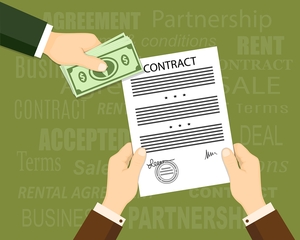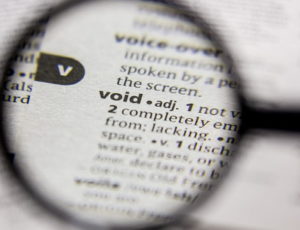 When you’re placing a bet, you might well do so entirely in good faith. You will likely place your bet, assuming that, if it is a winner, then the company that you have placed it with will have to pay you out.
When you’re placing a bet, you might well do so entirely in good faith. You will likely place your bet, assuming that, if it is a winner, then the company that you have placed it with will have to pay you out.
This certainly never used to be the case, with no legislation existing to force a licensed bookmaker to pay you in the event that you won a wager with them. Instead, the entire process was considered a ‘debt of honour’ rather than one that was enforceable by law. The good news is that that changed in 2007, when the Gambling Act came into law.
Nowadays, bookies will generally payout winning bets, but only within the confines of their own terms and conditions. That is to say, if a betting company thinks that a palpable error was made with the bet, or if they believe something nefarious has been going on, then can legally opt to not payout. The same is true if they suffer some form of software error, say, or another mistake has been made during the process. Of course, this doesn’t really tend to happen very often, but that isn’t the same as saying that it never happens.
The Change In 2005
 In 2005, the Gambling Act was signed into law. There was no major change for anyone initially, given that it didn’t come into effect until the first of September 2007, but it was a massive moment for bettors and betting companies the world over. The new laws were designed to ‘replace legislation dating as far back as 1845’, which is why many considered it to be such a crucial upgrading of the gambling laws. The Gambling Act of 1845 said that bets were not legally unenforceable, in the hope that this would discourage working class people from placing bets.
In 2005, the Gambling Act was signed into law. There was no major change for anyone initially, given that it didn’t come into effect until the first of September 2007, but it was a massive moment for bettors and betting companies the world over. The new laws were designed to ‘replace legislation dating as far back as 1845’, which is why many considered it to be such a crucial upgrading of the gambling laws. The Gambling Act of 1845 said that bets were not legally unenforceable, in the hope that this would discourage working class people from placing bets.
Since the first of September 2007, operators that have been given a gambling licence by the United Kingdom Gambling Commission need to obey the ‘Licence Conditions and Codes of Practice’, which included the ability of local authorities to impose sanctions on operators. One of the most important parts of the Act was the fact that ‘Gambling debts will become legally enforceable, helping to ensure those who win get paid.’ No longer could betting sites refuse to pay out and claim that the wager they accepted was just a ‘matter of honour’.
Bets Are Legally Binding, But Still Don’t Have To Be Paid
 Whilst bookmakers and other betting companies obviously have bad reputations, the truth is that the vast majority of wagers are processed without any issues. Hundreds of thousands, if not millions, of bets are placed on a daily basis, with only a tiny percentage of them ever facing any sort of problem. It is only right that we mention this, because it can otherwise seem as though bookies are constantly looking to refuse payouts when that really isn’t the case. Most of the time, betting companies know they’ll win your money back in the long-run.
Whilst bookmakers and other betting companies obviously have bad reputations, the truth is that the vast majority of wagers are processed without any issues. Hundreds of thousands, if not millions, of bets are placed on a daily basis, with only a tiny percentage of them ever facing any sort of problem. It is only right that we mention this, because it can otherwise seem as though bookies are constantly looking to refuse payouts when that really isn’t the case. Most of the time, betting companies know they’ll win your money back in the long-run.
Even so, the truth of the matter is that it does sometimes happen that betting companies refuse to pay someone out on a seemingly perfectly fair wager. There are a few excuses that are open to betting sites to try not to payout on a winning bet, with each promising something else in terms of the approach the company can take. These all tend to be covered by the terms and conditions that you implicitly agree to when you choose to place a bet; though most people might not realise as they don’t read the small print.
Bets Accepted In Error
 The first excuse that betting companies can turn to is that the wager was accepted in error. These tend to be fairly obvious ones that you can’t really argue with, such a bet that was accepted after an event has already finished or a wager placed on a related contingency. The latter is something that not a lot of people will know about, simply because it can seem quite confusing. In short, if one of the parts of a bet will influence the other then bookmakers won’t accept it as a wager. Take, for example, snow over the winter period.
The first excuse that betting companies can turn to is that the wager was accepted in error. These tend to be fairly obvious ones that you can’t really argue with, such a bet that was accepted after an event has already finished or a wager placed on a related contingency. The latter is something that not a lot of people will know about, simply because it can seem quite confusing. In short, if one of the parts of a bet will influence the other then bookmakers won’t accept it as a wager. Take, for example, snow over the winter period.
If you want to place a bet on football matches being cancelled because of snow, you will only be able to do so as Single bets. This is because geography effective ensures that areas are related, so if it snows in Leeds then the chances are high that it will also snow in nearby Bradford. Southampton bettor Cliff Bryant thought that he stood to win more than £7 million when he placed a bet with Ladbrokes about matches being cancelled because of snow in 2009. In the end, he received just over £30 because, according to Ladbrokes, the bet should never have been accepted.
Palpable Errors
 The other major excuse available to bookmakers comes in the form of palpable errors. The reason why this is so often used by betting companies to not pay out as that it isn’t always clear what makes an error ‘palpable’. In short, it is a mistake that can be reasonably claimed to be really obvious.
The other major excuse available to bookmakers comes in the form of palpable errors. The reason why this is so often used by betting companies to not pay out as that it isn’t always clear what makes an error ‘palpable’. In short, it is a mistake that can be reasonably claimed to be really obvious.
Imagine, for example, that you logged in to your betting account and looked at the odds on Liverpool defeating Manchester City and saw odds of 300/1. Given the two sides have dominated English football in recent times, it’s fair to say that’s an obvious error.
A bookmaker can refuse to payout on bets placed on these odds, give that the error can be considered to be ‘palpable’. According to the Independent Betting Adjudication Service, companies cannot use the palpable error excuse to ‘protect operators from errors of judgement or movements in the market they have failed to detect and respond to.’ In other words, just because they misjudged the odds or were slow to react to the market changing doesn’t mean that they can claim this as a palpable error, regardless of what the betting site might want.
Software Errors
 Given the extent to which most bets take place online, companies need to be wary of software errors that can occur from time to time. Most punters accept that this is the case and if there is a genuine mistake then they’ll deal with it. Some companies, however, will use this excuse in order to try to avoid paying out large sums of money, which is what the High Court felt Betfred were trying to do in 2021. That was when a customer by the name of Mr Green thought he’d won £1.7 million, only for Betfred to refuse to to payout.
Given the extent to which most bets take place online, companies need to be wary of software errors that can occur from time to time. Most punters accept that this is the case and if there is a genuine mistake then they’ll deal with it. Some companies, however, will use this excuse in order to try to avoid paying out large sums of money, which is what the High Court felt Betfred were trying to do in 2021. That was when a customer by the name of Mr Green thought he’d won £1.7 million, only for Betfred to refuse to to payout.
Andrew Green was playing the game Frankie Dettori Magic Seven Blackjack when he hit the jackpot, being told he’d won £1,722,923.54. He contacted Betfred, being congratulated by the company but later told that the third-party game provided would need to check and make sure that it was a fair one. He was later told that the game had suffered a ‘technical error’, resulting a player becoming more likely to win the longer they played for, which shouldn’t have been the case. Betfred offered Green £60,000 as a ‘goodwill gesture’.
They referred to their terms and conditions, which covered them for any liabilities due to ‘malfunctions’. Mr Green, rather understandably, chose to take Betfred to court. It eventually went to the High Court, where Mrs Justice Foster found in his favour, saying,
“The layout and the terminology used in the Terms and Conditions does not make clear in my judgment exactly what a player is obliged to agree to, nor where to find it…The language used in the Terms and Conditions is obscure and unclear.”
Green won the money that he felt he was fairly entitled to.
What To Do If A Company Refuses To Payout
 Most punters, if they’re being honest with themselves, will know when a company’s decision not to pay out winnings is fair. If you’ve been trying to launder money, for example, then you probably won’t want to kick up too much of a fuss in order to get money that you think you’re owed. Similarly, a bet that was clearly an error in odds that you’ve tried to take advantage of will never be paid out on. Yet there are some times when you will feel as though you’re owed money and the betting company concerned isn’t being fair.
Most punters, if they’re being honest with themselves, will know when a company’s decision not to pay out winnings is fair. If you’ve been trying to launder money, for example, then you probably won’t want to kick up too much of a fuss in order to get money that you think you’re owed. Similarly, a bet that was clearly an error in odds that you’ve tried to take advantage of will never be paid out on. Yet there are some times when you will feel as though you’re owed money and the betting company concerned isn’t being fair.
If this happens, the first thing that you’ll want to do is to exhaust all options with the betting company themselves. Once that is done, you can turn to the likes of the Independent Betting Adjudication Service. Depending on how much it is that you feel as though you’re owed, companies will have to abide by their decision but you’re still entitled to take them to court. That, of course, is the option that is open to you if you genuinely feel as though the betting company in question is not being fair in refusing to payout the winnings you think you’re owed.
You can also complain to the UKGC in certain circumstances if you believe a betting site has contravened their licensing conditions, but they won’t deal with individual customer bet complaints as a rule. You can also complain to the ASA if you think something was advertised to you in a misleading way or if the advert contravenes CAP guidelines.
